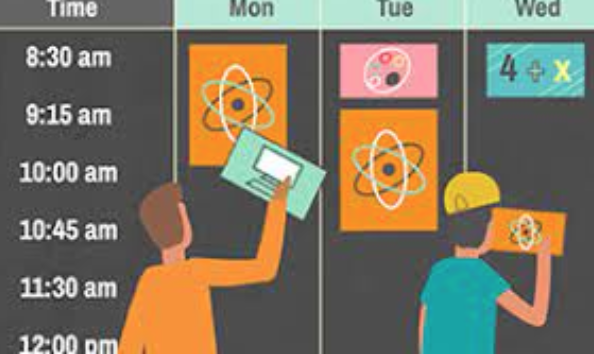Written by: Alex Mueller, Staff Writer
CHANGE: California mandates new school start times in high schools and middle schools across the nation.
In October 2019, California Governor Gavin Newsom approved Senate Bill 329, mandating that school days begin no earlier than 8:30 am by the start of the 2022-2023 school year. Subsequently, RUSD families and faculty shall soon face a new schedule, geared to later starting and inevitably later ending times. Yet, various concerns plague the advent of this schedule, emphasizing the imperative need for school-wide communication.
According to the CDC (Center for Disease Control), teenagers require eight to ten hours of sleep each night, yet nearly seventy percent of teens fail to regularly satisfy this metric. Mixed with data suggesting that teens maintain naturally later sleeping patterns, this lack of sleep encourages the CDC, as well as much of the scientific community, to recommend school start times of at least 8:30. In other words, both a scientific consensus and the CDC itself support the changes Poly’s upcoming schedule will bring, seemingly justifying RUSD’s transition to a newer start time.
However, teachers and other students express concerns. In a poll conducted on Poly Spotlight’s Instagram account, only 51% of students supported later start times, with 49% voting against it. Though the schedule change maintains a slight majority support, opinions regarding it remain staunchly divided, and this division signals the presence of various flaws and individual concerns laden within the changing schedule. Responding to the poll, opponents voiced various concerns for practice times and parenting, with one student proclaiming “practice [is going to be] so late” and others voiced concerns for parents and their own schedules. Overarchingly, opposition to the schedule focuses on the practical application of the new start time and the disturbances it may bring. In the future, practices and the times of other school events will inevitably change to periods before the school day or times abnormally later than usual, with the new schedule generally distorting the scheduling of school services and activities. Therefore, without proper considerations, new scheduling will bring undesired complications to the lives of various students, undermining its ability to succeed.
Student jobs and other external pursuits, oftentimes occurring directly after school, will also face new obstacles. Later ending times limit the space between work and arriving home, reducing chances for individual student activities outside the classroom. Moreover, later start times alter transportation schedules for parents and students and force solidified bus routes and times to change. Jeopardizing the overall success of the schedule, this imposes logistical stress on parents and fiscal stress on schools who must adapt to shifting conditions, necessitating school-wide cooperation to minimize wide-spread impostitions. Although bolstered by a scientific consensus, later start times spur various potentially problematic scenarios, with challenges accumulating without active coordination to minimize their impositions. If left uncontrolled, such problems will inevitably materialize as the new timing jeopardizes and complicates student schedules, arbitrarily alters the schedules of parents whose individual work and life schedules must swiftly adapt, and deteriorates student opportunities.
To ensure a smooth and efficient transition, communication with Riverside’s parents, employers, schools, teachers, coaches and students is imperative, allowing Riverside’s community to adapt to inevitable change. With proper communication and coordination to fit student schedules in spite of growing complications, RUSD, providing necessary concessions, can ultimately secure its transition’s effectiveness.

